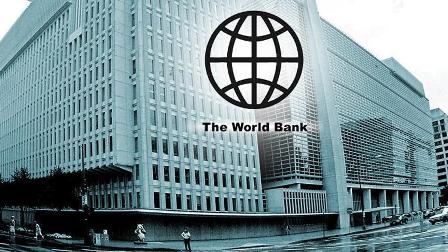The World Bank has said economic growth in Sub-Saharan Africa would rebound moderately to 2.7% in 2021, while Nigeria’s growth was expected to resume at 1.1%.
It said this in a statement issued in Washington D.C on Tuesday at the presentation of the January 2021 Global Economic Prospects.
According to the bank, global economy is expected to grow by 4 per cent during the year, assuming an initial COVID-19 vaccine becomes widespread throughout the year.
It added that the said recovery would likely be subdued unless policy makers moved decisively to tame the pandemic and implement investment enhancing reforms.
On its projection for the Sub-Saharan Africa, it said that while the recovery in private consumption and investment was forecast to be slower than previously envisioned, export growth was expected to accelerate gradually in line with the rebound in activity among major trading partners.
“Expectations of a sluggish recovery in Sub-Saharan Africa reflect persistent COVID-19 outbreaks in several economies that have exhibited the resumption of economic activity.
“The pandemic is projected to cause per capita income to decline by 0.2% this year, setting Sustainable development Goals (SDGs) further out of reach in many countries in the region.
“This reversal is expected to push 10s of millions more people into extreme poverty over last year and this year,” it stated.
For Nigeria, it said activity was anticipated to be dampened by low oil prices, Organization of Petroleum Exporting Countries (OPEC) quotas, falling public investment due to weak government revenues, constrained private investment due to firm failures and subdued foreign investor confidence.
It, however, said that the rebound in Africa was expected to be slightly stronger, although below historical averages among agricultural commodity exporters, adding that higher international prices for agricultural commodities were expected to sustain activity.
Projecting risks for the region, it said that they were tilted to downside as growth in major trading partners could fall short of expectations.
It said that wide scale distribution of COVID-19 vaccine distribution in the region would likely face many huddles, including poor transport infrastructure and weak health systems capacity
©Copyright MOTORING WORLD INTERNATIONAL.
All rights reserved. Materials, photographs, illustrations and other digital content on this website, may not be reproduced, published, broadcast, rewritten or redistributed in whole or in part without prior written permission from Motoring World International
Contact: [email protected]




